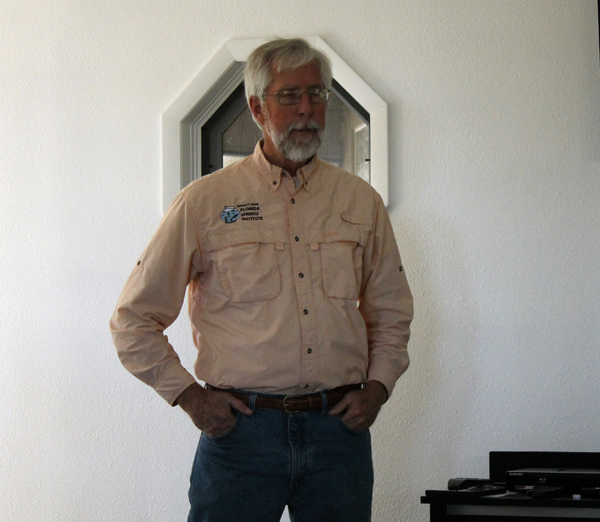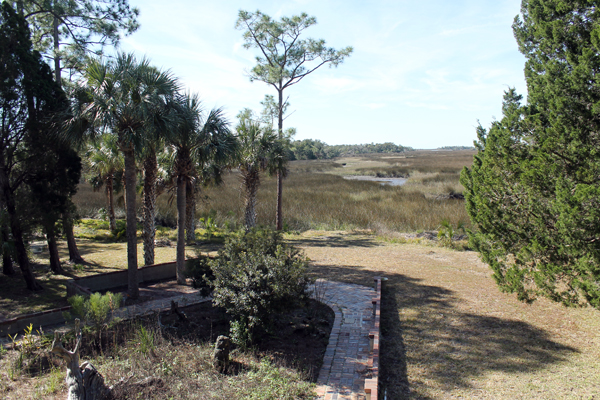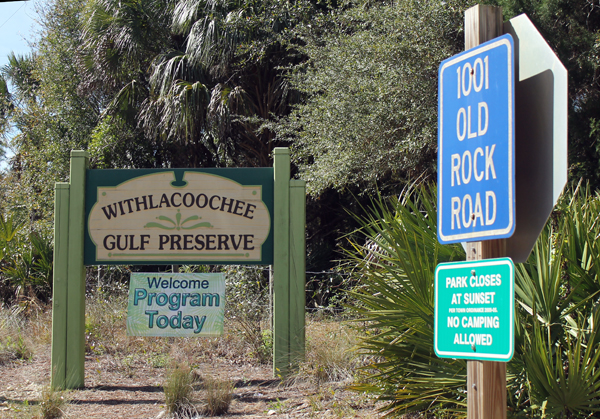On our continuing quest to understand how we are affecting our springs and aquifer, Terry and I headed up to Yankeetown Saturday morning to hear a presentation by Dr. Bob Knight, founder of the Florida Springs Institute, at the Withlacoochee Gulf Preserve, Ellie Schiller Education Center.
I posted a few weeks ago about a Friends of the Crystal River National Wildlife Refuge Complex meeting where the featured speaker was Chris Anastasiou, Ph.D., a chief scientist and the leader of the Springs Team of the Southwest Florida Water Management District (SWFMD). His presentation was entirely scientific and based on data that SWFMD has collected over a number of years. What struck me was a slide that showed that nitrates are highest at the spring vent. As the water flows out to the Gulf of Mexico, the nitrates are diluted. Nitrates grow plants and cause greening which accounts for the prevalence of lyngbya and other invasive plant species in Kings Bay.
Up until this point, I had believed our springs were being polluted mainly by the coastal areas so Dr. Anastasiou’s slide made me realize that responsibility lies beyond our region.
Dr. Knight’s presentation added some clarity to the issue. I’m oversimplifying this, but the aquifer is one big water-filled cave under the entire state. While we all effect the aquifer since we all use water, the main consumption is from agriculture and mining. Polk County actually pumps the most. In turn, fertilizer, which is mainly nitrogen, drains into the aquifer. So what happens in a distant county ends up in our springs and our kitchen faucet.

According to Dr. Knight, the only way to fix this issue is to charge for water and also raise prices for fertilizer. While residents usually pay for water at the levels they use, agriculture does not. They also dump more fertilizer than necessary on their crops because it’s inexpensive then it ends up in the aquifer. Simple economics will fix the problem but that’s not going to happen without new legislation.
On our own part to help the springs, Dr. Knight suggests we use fertilizer sparingly and only use slow-release products, clean up spills, don’t fertilize before rain is predicted, conserve water, and contact our legislators to pass laws to protect our springs.
There were many more points that Dr. Knight covered which I do not have space to go into. If you ever get a chance to hear Dr. Knight speak, please go. He’s a very interesting and enlightening speaker.


